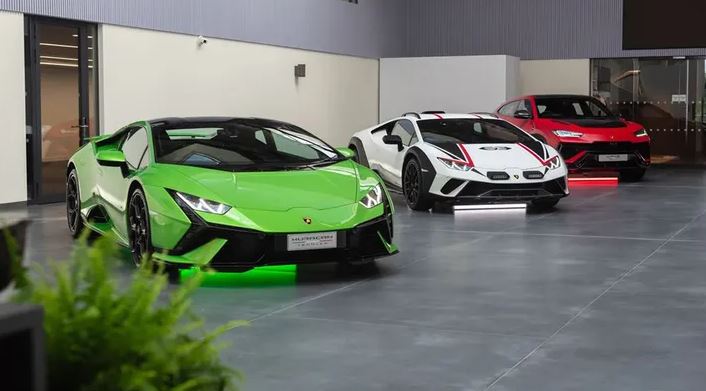Lamborghini, under the leadership of CEO Stephen Winkelmann, has reached a significant milestone as it prepares to shift towards an exclusive hybrid lineup. Winkelmann revealed in an interview with German newspaper WELT that the combustion engine models from the luxury carmaker are completely sold out until the end of their production. This signifies a momentous turning point for Lamborghini, as they embrace the inevitable transition to a new era of hybrid vehicles.
The order books for popular models like the Huracan and Urus are already full, indicating the high demand for Lamborghini’s current lineup of combustion engine vehicles. However, the company is now set to embark on a transformative journey, introducing plug-in hybrid replacements for their iconic Aventador and Huracan supercars, as well as a plug-in hybrid variant of their successful Urus SUV. By embracing hybrid technology, Lamborghini aligns itself with the global trend towards cleaner energy and reduced emissions.
Looking ahead, Lamborghini has set its sights on launching its first fully electric vehicle by 2030. This strategic move demonstrates the company’s commitment to the ongoing electrification of the automotive industry. Winkelmann, while expressing optimism about Lamborghini’s sales performance in recent years, anticipates achieving “very good results” for the company in the current year.
Presently, the V10-powered Huracan and the Urus SUV are the only combustion engine models available for purchase from Lamborghini. These vehicles can be equipped with a four-liter, twin-turbo V8 engine, providing powerful performance for enthusiasts who appreciate the raw and exhilarating experience of a combustion engine.
Lamborghini’s commitment to a hybrid future was first announced in July of the previous year. The company has allocated a substantial investment of at least 1.8 billion Euros ($1.96 billion USD) to develop a comprehensive hybrid lineup by 2024. Additionally, Lamborghini aims to introduce a fully electric model by the end of the decade. While specific details regarding the electric vehicle’s design are yet to be finalized, Winkelmann suggested that the model is likely to be a visually captivating two-door car, emphasizing Lamborghini’s dedication to creating exciting and captivating vehicles.
The move towards electrification in the automotive industry is primarily driven by global efforts to combat climate change and reduce dependence on fossil fuels. Governments around the world have proposed ambitious deadlines, as early as 2030, to phase out internal combustion vehicles and promote the widespread adoption of cleaner energy sources. The recent climate change report by the United Nations’ Intergovernmental Panel on Climate Change (IPCC) has further underscored the urgent need for investments in clean energy and the gradual elimination of fossil fuels. Describing the situation as “imminent,” the IPCC report serves as a rallying cry for nations to prioritize climate efforts and work collectively to defuse the “climate time bomb” for the sake of humanity’s survival.

